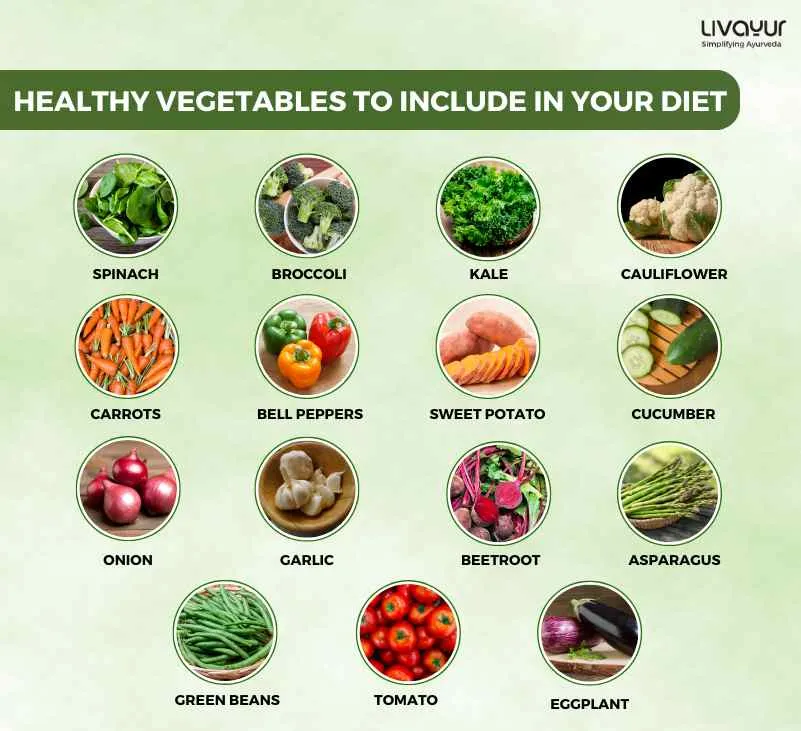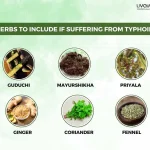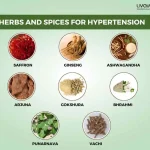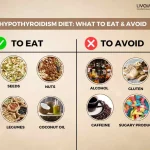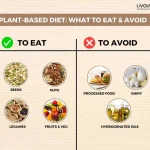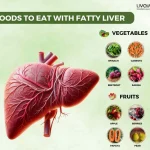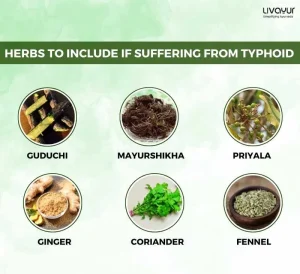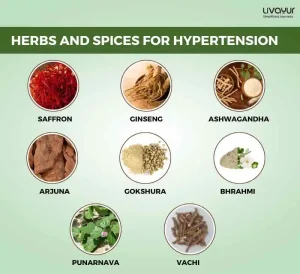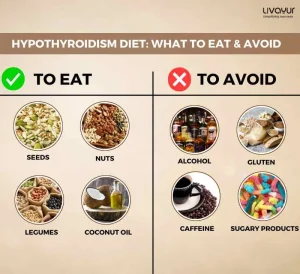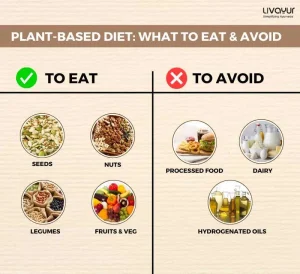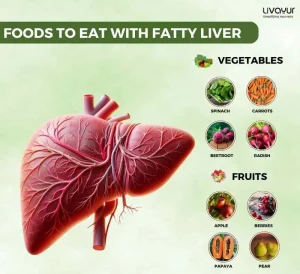This article is reviewed by an expert
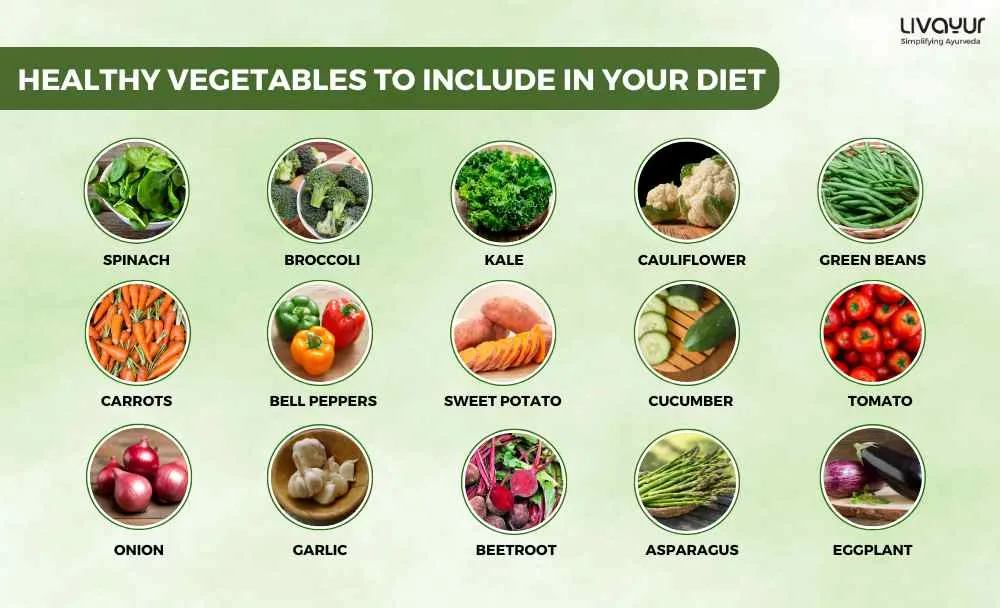
Vegetables are an essential part of a healthy diet. They are rich in vitamins, minerals, fibre, and other important nutrients that can help maintain good health and reduce the risk of chronic diseases like heart disease, diabetes, and cancer [1].
1. Spinach
Spinach is a leafy green vegetable that is high in vitamins A and C, folate, iron, and calcium. It is also rich in antioxidants, which can help protect the body against oxidative stress and inflammation [1].
2. Broccoli
Broccoli is a cruciferous vegetable that is high in vitamins C and K, folate, and is one of the high fibre vegetables. It also contains sulforaphane, a compound that has been shown to have anti-cancer properties [2].
3. Kale
Kale is another leafy green vegetable that is high in vitamins A and C, calcium, and is a fibrous vegetable. It also contains antioxidants like beta-carotene and quercetin, which can help protect the body against oxidative stress and inflammation [3].
4. Brussels Sprouts
Brussels sprouts are a cruciferous vegetable that is high in vitamins C and K, folate, and fibre. They also contain glucosinolates, which are compounds that have been shown to have anti-cancer properties [4].
5. Carrots
Carrots are root vegetable that is high in vitamins A and K, potassium, and fibre. They also contain beta-carotene, which is converted to vitamin A in the body and is important for maintaining healthy vision [5].
6. Sweet Potatoes
Sweet potatoes are root vegetable that is high in vitamins A and C, potassium, and fibre. They also contain antioxidants like beta-carotene and anthocyanins, which can help protect the body against oxidative stress and inflammation [6].
7. Peppers
Peppers are a vegetable that comes in many colours, including green, red, and yellow. They are a rich source of vitamins A and C, as well as fibre and potassium. They also contain capsaicin, a compound that has been shown to have anti-inflammatory and pain-relieving properties [7].
8. Tomatoes
Tomatoes are a fruit that is often used as a vegetable in cooking. They are a rich source of vitamins A and C, as well as potassium and fibre. They also contain lycopene, a powerful antioxidant that has been shown to have anti-cancer properties [8].
9. Cucumbers
Cucumbers are a vegetable that is high in vitamins K and C, as well as fibre and potassium. They also contain antioxidants like cucurbitacins, which can help protect the body against cancer and inflammation [19].
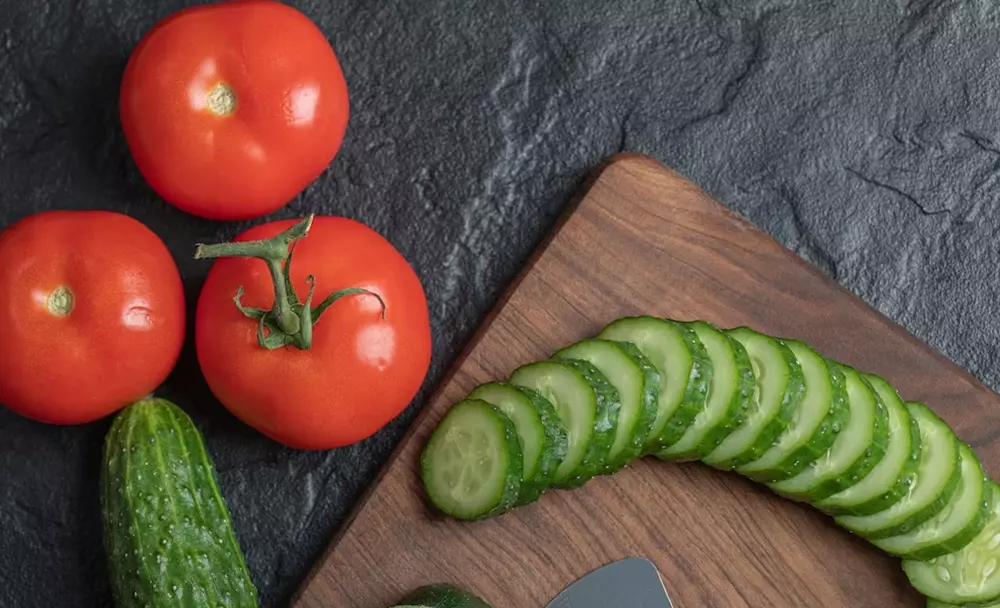
10. Cauliflower
Cauliflower is a cruciferous vegetable that is high in vitamins C and K, folate, and fibre. It also contains sulforaphane, a compound that has been shown to have anti-cancer properties [9].
11. Cabbage
Cabbage is another cruciferous vegetable that is high in vitamins C and K, folate, and fibre. It also contains glucosinolates, which are compounds that have been shown to have anti-cancer properties [10].
12. Onions
Onions are a root vegetable that is high in vitamins C and B6, as well as fibre and potassium. They also contain flavonoids, which are compounds that have been shown to have anti-inflammatory and anti-cancer properties [11].
13. Garlic
Garlic is a vegetable that is often used as a spice in cooking. It is a rich source of vitamins C and B6, as well as manganese and selenium. It also contains allicin, a compound that has been shown to have anti-inflammatory and anti-cancer properties [12].
14. Beets
Beets are a root vegetable that is high in vitamins C and B6, folate, and fibre. They also contain betaine, a compound that has been shown to have anti-inflammatory and anti-cancer properties [13].
15. Asparagus
Asparagus is a vegetable that is high in vitamins A and C, as well as folate and fiber. It also contains antioxidants like glutathione, which can help protect the body against oxidative stress and inflammation [14].
16. Eggplant
Eggplant is a vegetable that is high in vitamins A and C, as well as fiber and potassium. It also contains nasunin, a compound that has been shown to have antioxidant and anti-inflammatory properties [15].
17. Zucchini
Zucchini is a vegetable that is high in vitamins A and C, as well as fiber and potassium. It also contains antioxidants like lutein and zeaxanthin, which can help protect the eyes against age-related macular degeneration [16].
18. Artichokes
Artichokes are a vegetable that is high in vitamins C and K, as well as fiber and antioxidants. They also contain cynarin, a compound that has been shown to have liver-protective properties [17].
19. Green Beans
Green beans are a vegetable that is high in vitamins A and C, as well as fiber and potassium. They also contain antioxidants like carotenoids and flavonoids, which can help protect the body against oxidative stress and inflammation [18].
20. Radishes
Radishes are a vegetable that is high in vitamins C and B6, as well as fibre and potassium. They also contain anthocyanins, which can help protect the body against oxidative stress and inflammation [20].
From reducing the risk of chronic diseases to promoting healthy vision, these benefits of vegetables cannot be ignored as they are packed with nutrients that can help you maintain good health. So be sure to include a variety of these vegetables in your meals to get the most out of their health benefits.
Disclaimer: This article is written from a health and lifestyle perspective.
References:
- https://www.healthline.com/nutrition/foods/spinach
- https://www.healthline.com/nutrition/foods/broccoli
- https://www.healthline.com/nutrition/foods/kale
- https://www.healthline.com/nutrition/foods/brussels-sprouts
- https://www.healthline.com/nutrition/foods/carrots
- https://www.healthline.com/nutrition/foods/sweet-potatoes
- https://www.healthline.com/nutrition/foods/peppers
- https://www.healthline.com/nutrition/foods/tomatoes
- https://www.healthline.com/nutrition/foods/cauliflower
- https://www.healthline.com/nutrition/foods/cabbage
- https://www.healthline.com/nutrition/foods/onions
- https://www.healthline.com/nutrition/foods/garlic
- https://www.healthline.com/nutrition/foods/beets
- https://www.healthline.com/nutrition/foods/asparagus
- https://www.healthline.com/nutrition/foods/eggplant
- https://www.healthline.com/nutrition/foods/zucchini
- https://www.healthline.com/nutrition/foods/artichokes
- https://www.healthline.com/nutrition/foods/green-beans
- https://www.healthline.com/nutrition/foods/cucumbers
- https://www.healthline.com/nutrition/fods/radishes




